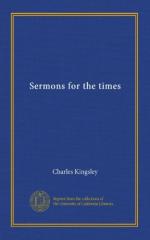So far we have been praying to our Heavenly Father, first as a Father, then as a King, then as an Inspirer, then as a Giver; and next we pray to Him as a Forgiver—’Forgive us our trespasses.’ We have been confessing in these four petitions what God’s goodwill to man is; what God wishes man to be, how man ought to live and believe. And then comes the recollection of sin. We must confess what God’s law is before we can confess that we have broken it; and now we do confess that we have broken it. We know that God is our Father. How often have we forgotten that He is a father; how often have we forgotten to be good fathers ourselves.
We are in God’s kingdom. How often have we behaved as if we were our own kings, and had no masters over us but our own fancies, tempers, appetites! We are to do His will on earth as it is done in heaven. How have we been doing our own will!—pleasing ourselves, breaking loose from His laws, trying to do right of our own wills and in our own strength, instead of asking His Spirit to strengthen, and cleanse, and renew our wills, and so have ended by doing not the right which we knew to be right, but the wrong which we knew to be wrong. God is a giver. How often have we looked on ourselves as takers, and fancied that we must as it were steal the good things of this world from God, lest He should forget to give us what was fitting! How often have we forgotten that God gives to all men, as well as to us; and while we were praying, give me my daily bread, kept others out of their daily bread!
Oh, my friends, we cannot blame ourselves too much for all these sins; we cannot think them too heinous. We cannot confess them too openly; we cannot cry too humbly and earnestly for forgiveness. But we never shall feel the full sinfulness of sin; we never shall thoroughly humble ourselves in confession and repentance, unless we remember that all our sins have been sins against a Father, and a forgiving Father, and that it is His especial glory, the very beauty and excellence in Him, which ought to have kept us from disobeying Him, that He does forgive those who disobey Him.
And, lastly, in like manner, when you say, ’Lead us not into temptation, but deliver,’ &c., you are not only entreating God to lead you, but you are honouring and praising Him, you are setting forth His glory, and declaring that He is a God who does lead, and a God who does not leave His poor creatures to wander their own foolish way, but guides men, in spite of all their sins, full of condescension and pity, care and tender love. You do not only ask God to deliver you from evil, but you declare that He is righteous, and hates evil; that He is love, and desires to deliver you from evil; One who spared not His only-begotten Son, but gave Him freely for us, to deliver us from evil; and raised Him up, and delivered all power into His hand, that He might fight His Father’s battle against all which is hurtful to man and hateful to God, till death itself shall be destroyed, and all enemies put under the feet of the Saviour God.




